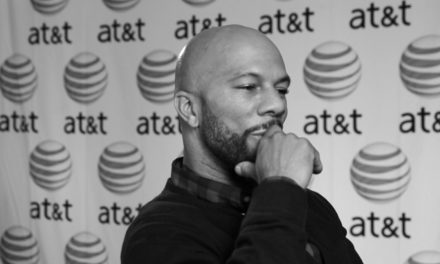Penny Lawrence | Correspondent
The audience walks into a burnt house and is instantly transported to Richmond, Virginia in 1865. Right at the end of the war, when slaves have been freed. The lights flicker and a storm brews outside, setting the stage for an intense and intimate experience. The audience was in the scene, sat in chairs in the middle of the house. The lights go dark and start the beginning of a dramatic and suspenseful story.
The play is in Raleigh Little Theatre. Directed by Patrick Torres, and acted out by Ryan Ladue, Phillip Bernard Smith, and Chris Helton. The Whipping Man emphasizes the hypocrisy of celebrating Passover while owning slaves as well as questioning the definition of family and the effects slavery has on religion. An outstanding line, “Were we Jews or were we slaves?” served as the overarching theme of the work.
As far as plays go, this one shows an interesting take on the end of the civil war. It follows a Jewish “family” of sorts during their holiday of Passover, a celebration to mark the time when Jews were released from slavery in Egypt.
The family will get together and reenact with food and wine what it was like at that time. Two former slaves and their slave master’s son celebrate this together in the play. It leaves the audience and the characters to question the definition of family and what it meant for Jews that owned slaves to celebrate the end of their own slavery. Torres said, “The play speaks truth on so many levels – social, religious, political and familial.”
Each actor in the three character play added his own mark. The first to appear on stage was Caleb, portrayed by Ryan Ladue. The son of a previous slave owner, and an injured veteran, Caleb comes home to find an empty house ravaged by war.
Ladue adds a weakness and naivety to the character. However, as Ladue said, that is not the entire character, “It’s also very interesting that Caleb could be interpreted as sort of the villain of the piece, being from the slave owning family, but I don’t think that’s fair to how well rounded he actually is.”
Simon, the second on stage, was played by Phillip Bernard Smith, was a former slave to Caleb’s family and a loving father. Smith did an amazing job bringing the character to life. The strong and morally strict character is revealed to be human and has his complex inner workings brought out through Smith. He does a wonderful job portraying the raw emotion in some of the more intense scenes, as well as bringing some humor to the scenes in a way that did not topple the tension.
The last on stage was the character John, played by Chris Helton. He was an intelligent and young former slave of the same family. Helton portrayed an inner conflict as though he himself were the character. Helton said, “Not only do I understand John, but I empathize and resonate with John. I see a lot of him in me.”
Helton says of John, “John’s biggest strength is his intelligence…His intelligence has become a survival skill for him.” Yet, “He feels invincible and his lack of worldly experience often causes him to blindly make decisions without understanding the consequences.”
John’s words were light hearted while at the same time infinitely serious. Helton did a good job showing the change through the character.
The makeup was done well to make Caleb look injured and sick, and he wore an interesting costume that made the scene even more realistic.
Most stunningly were the lights and sounds that went along with the play. There were flashes of lightning and peals of thunder. As well as seamless transitions with music that seemed to add a dreaminess to the play.
It felt like a memory with the set and surroundings. Torres explained why the audience was in the house, “It is hard to distance yourself from the characters and the story in our production because you are sitting in the house where the action unfolds.”
As was written in the director’s note, “Americans owned millions of slaves, even as their founding document announced the self-evident truths ‘that all men are created equal, that they are endowed by their creator with certain unalienable rights, that among these are Life, Liberty and the Pursuit of Happiness.’”
This is something that affects society today. It is something that people question and fight against regardless of the evidence. Here at North Carolina State University, there are a diverse number of people, but that has not stopped the campus from having issues with hate speech and disrespect.
As Torres also said, “In the Seder ritual, participants name the things in their lives they are still slaves to – and Simon asks this question in the play. I think this question is what makes the play ring true. What are we still slave to as individuals?” This is true for everyone, no matter what it is. It could be habits, money and even drugs.
Everyone at campus could use this intimate insight into these characters’ minds. Because in order to understand and respect another’s’ point of view, you have to be introduced to it. This play makes the audience think and question themselves in a way everyone should. It is definitely worth seeing.


